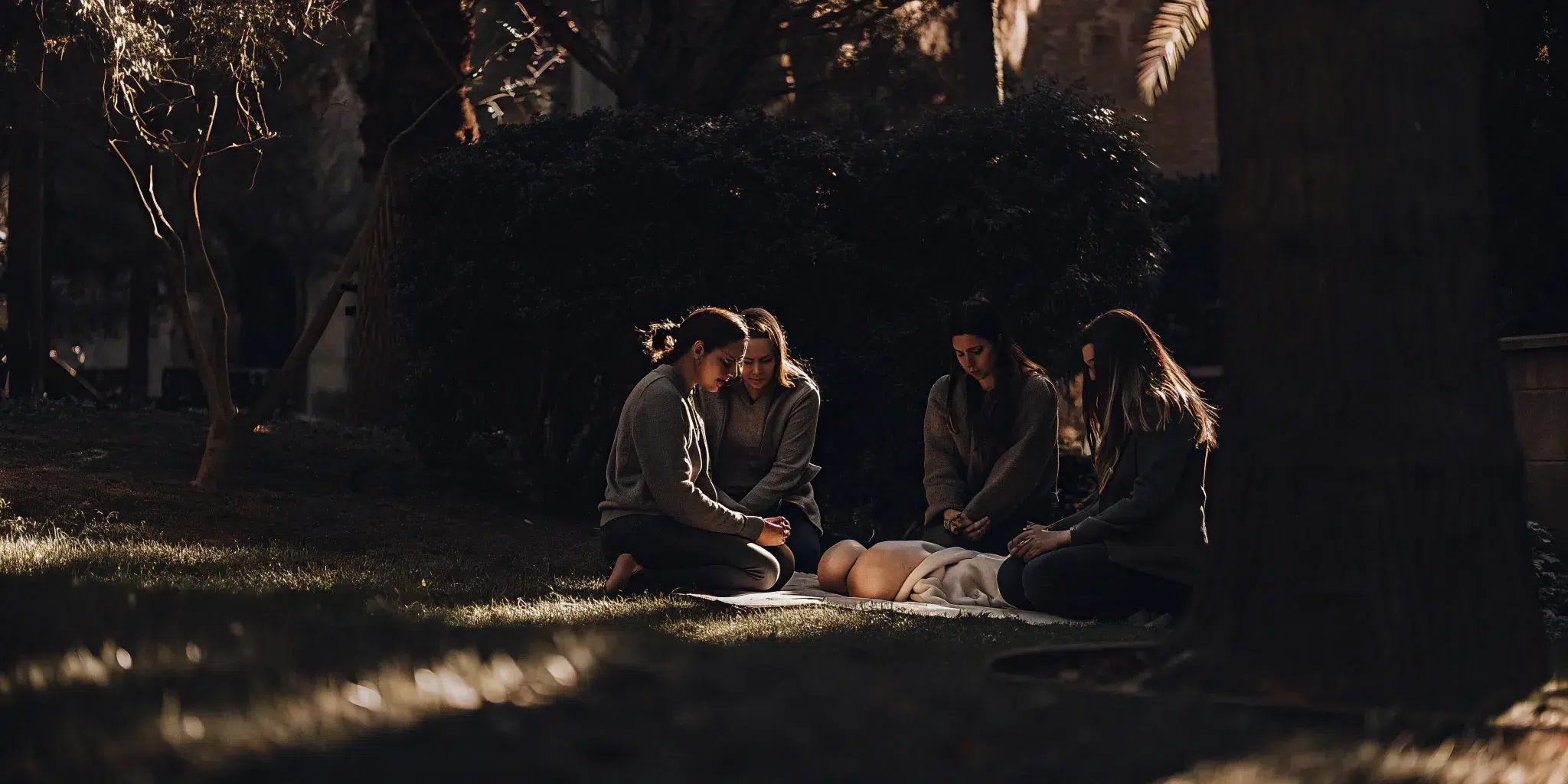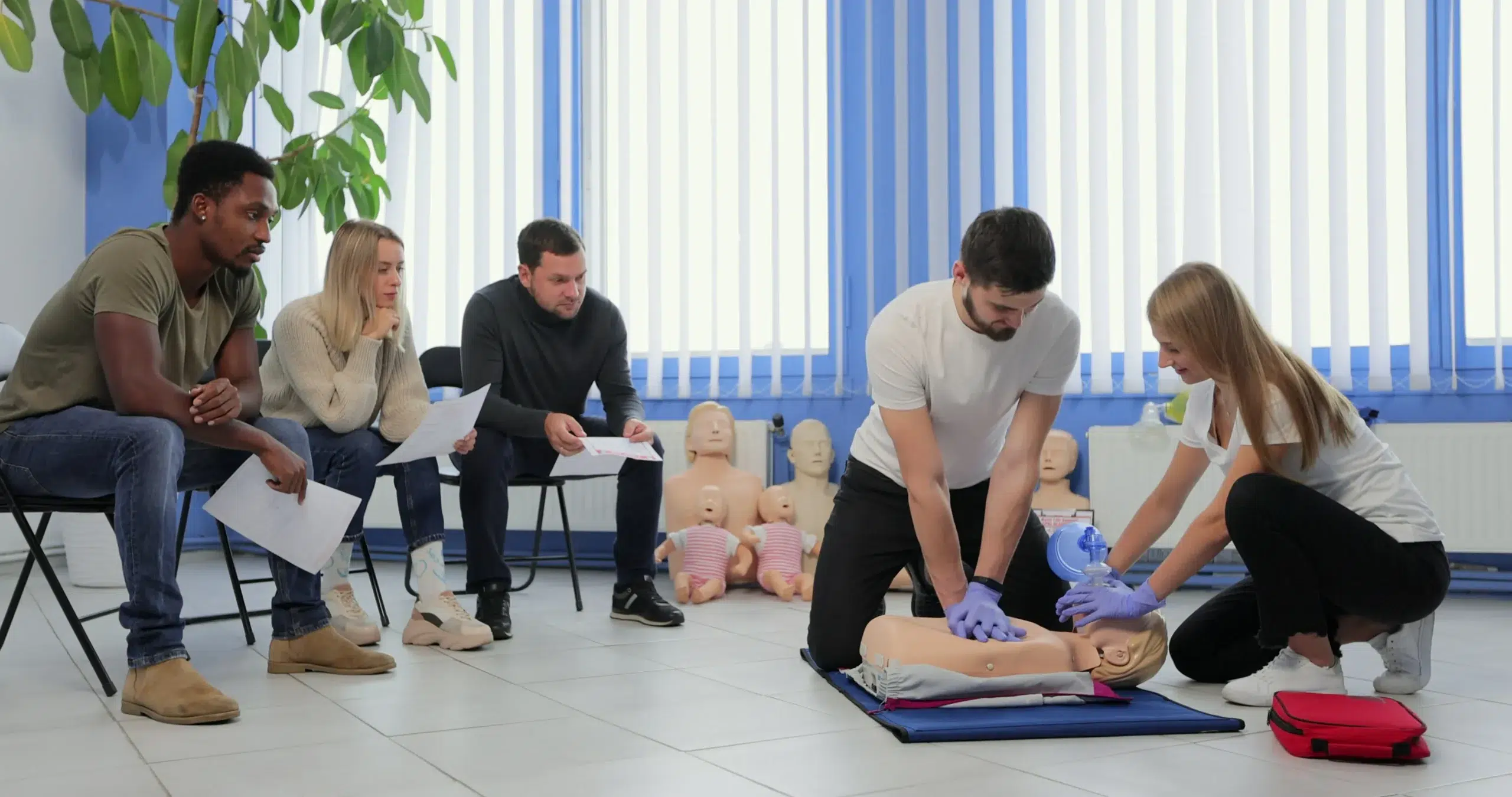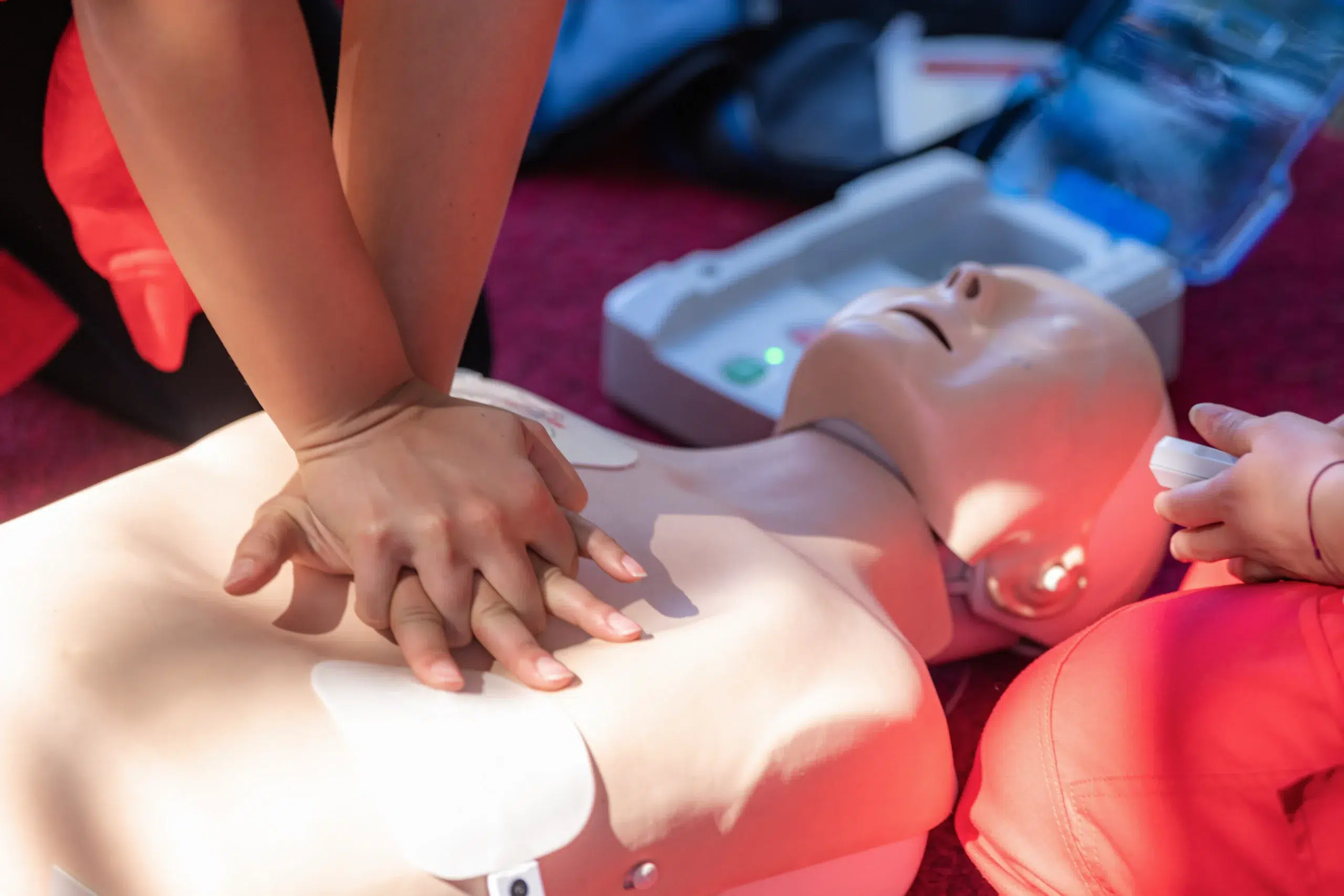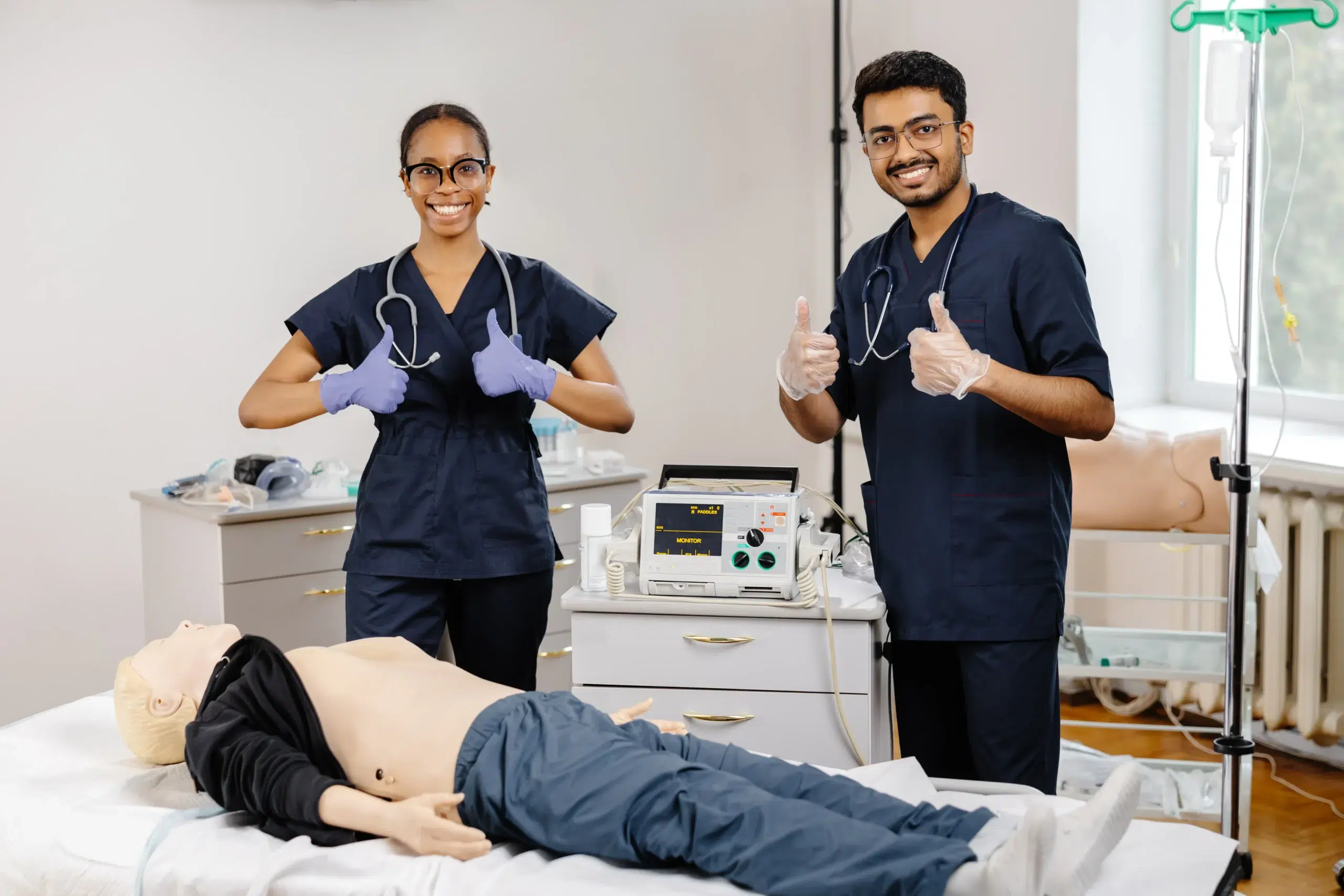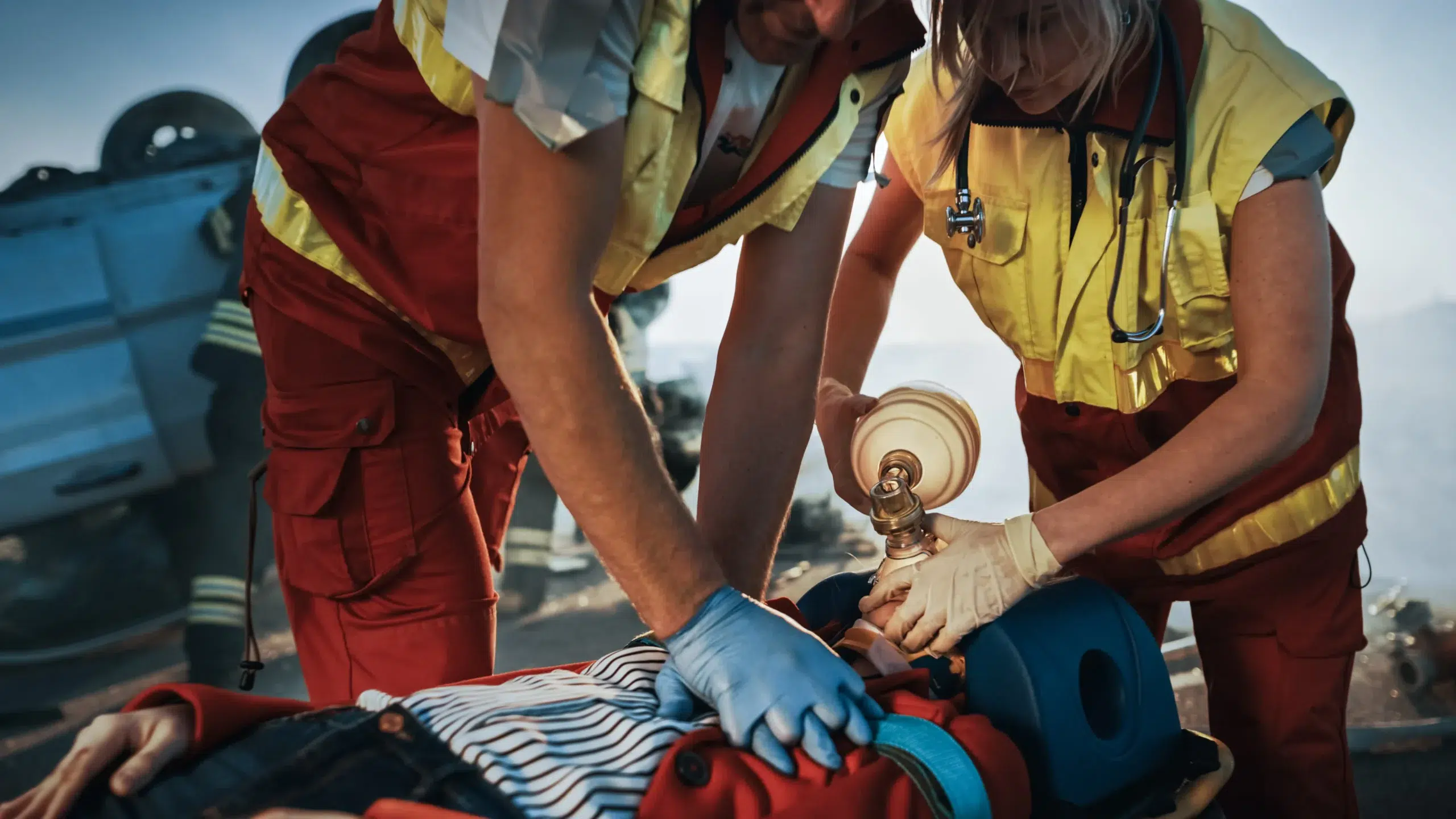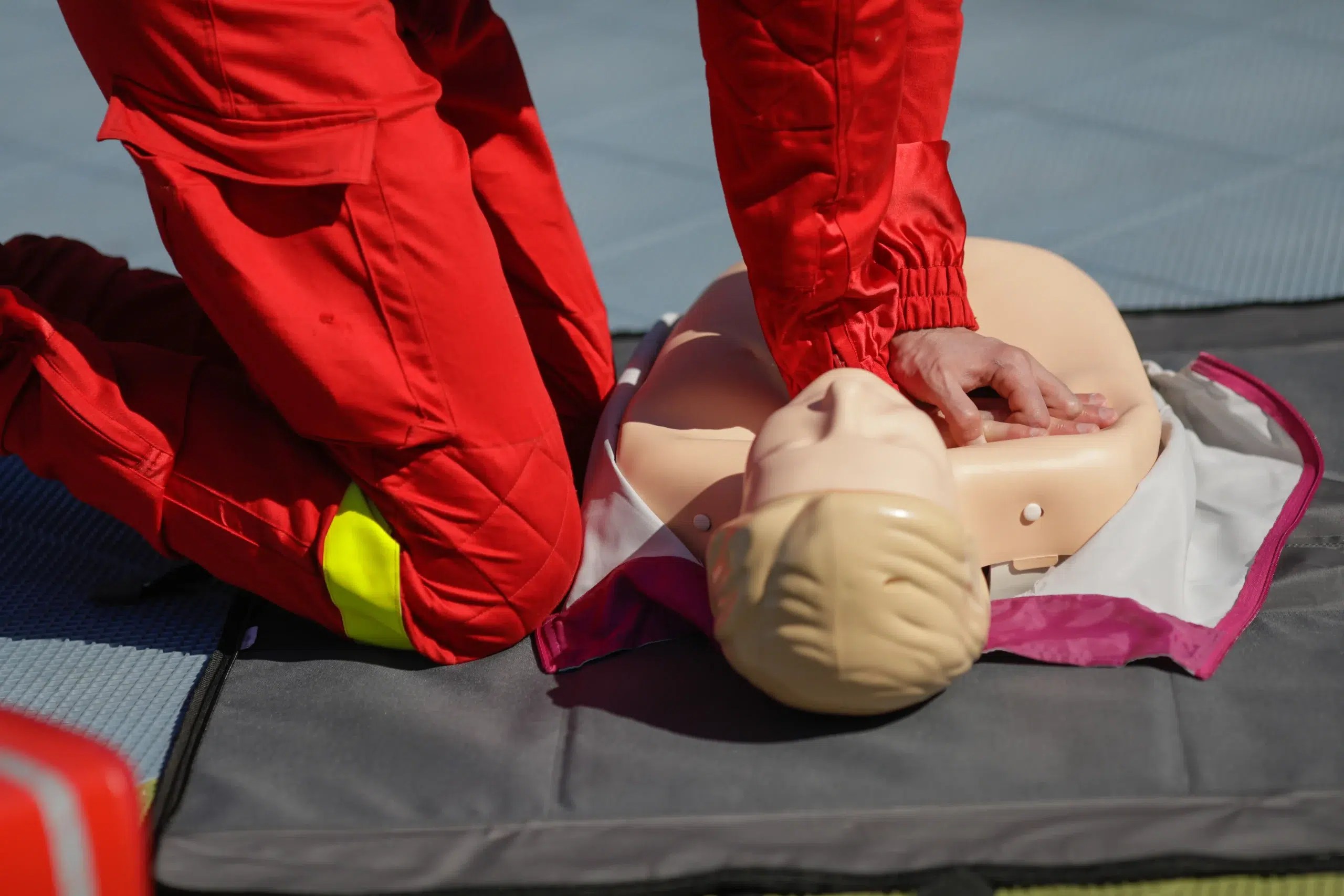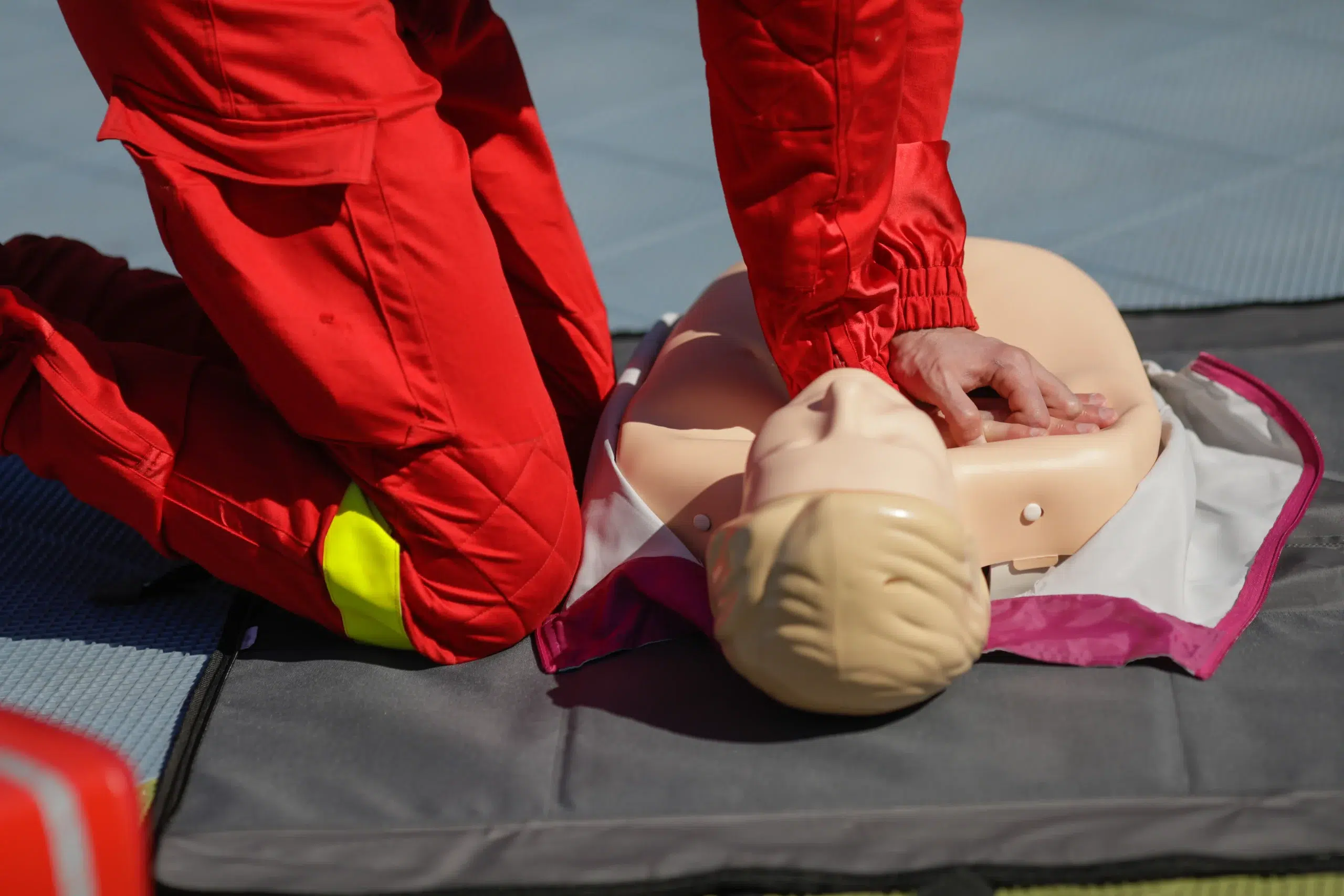Learning CPR can quite literally save a life, and knowing where to find reliable San Jose CPR certification is the first step. Whether you’re a healthcare professional required to maintain your certification, a caregiver wanting to be prepared for any situation, or simply someone who wants to learn a valuable life skill, this guide will walk you through everything you need to know about CPR certification in San Jose. We’ll cover the different types of CPR classes available, the costs involved, how to find a class that fits your schedule, and why choosing the right provider matters. We’ll also explore the benefits of CPR certification and provide resources to help you stay up-to-date with the latest guidelines. Let’s get started!
Key Takeaways
- Find the right CPR class for you: From basic CPR and First Aid to advanced certifications like ACLS and PALS, there’s a course for everyone. Consider your individual needs and career goals when choosing.
- Select a reputable training provider: Look for accreditation, experienced instructors, and convenient class times and formats. A provider’s reputation and student reviews can offer valuable insights.
- Stay current with your CPR skills: Regular practice and refresher courses are key to maintaining your skills and confidence. Staying up-to-date on the latest guidelines ensures you’re prepared to provide effective care in any emergency.
What is CPR Certification in San Jose?
CPR certification in San Jose gives you the skills to respond to cardiac and breathing emergencies. These certifications, often provided through organizations like the American Heart Association (AHA) or the Red Cross, teach the proper techniques for performing CPR, using an AED (automated external defibrillator), and providing first aid. CPR classes in San Jose cover essential life-saving procedures, giving you the confidence to act quickly and effectively in critical situations. Whether you’re a healthcare professional, a student, or simply someone who wants to be prepared, CPR certification provides valuable training that can make a real difference. Many providers offer various CPR certification courses to meet the specific needs of different individuals and professions in the San Jose area, including nearby cities like Santa Clara and Sunnyvale.
CPR Certification Classes: Which One is Right for You?
Choosing the right CPR certification course depends on your individual needs and career goals. Here’s a breakdown of the different CPR classes available in San Jose to help you decide:
Basic Life Support (BLS)
The BLS certification course provides foundational life-saving skills for healthcare providers and other professionals who respond to medical emergencies. It covers core skills for adults, children, and infants, including CPR, AED use, and relief of choking. At Safety Training Seminars, our BLS certification courses adhere to the latest American Heart Association guidelines. This class is essential for doctors, nurses, paramedics, and other healthcare professionals.
Advanced Cardiovascular Life Support (ACLS)
The ACLS certification course builds on the skills learned in BLS, focusing on advanced cardiovascular care. It’s designed for healthcare professionals who manage respiratory and cardiovascular emergencies, such as cardiac arrest, stroke, and acute coronary syndromes. This course covers airway management, pharmacology, and team dynamics. Our ACLS courses prepare healthcare providers for complex medical situations.
Pediatric Advanced Life Support (PALS)
Designed for healthcare providers who treat infants and children, the PALS certification course focuses on the specialized skills needed to respond to pediatric emergencies. It covers pediatric assessment, respiratory management, and defibrillation. The PALS certification, like our ACLS course, is crucial for pediatricians, pediatric nurses, and other healthcare professionals working with young patients. You can find more information about our PALS courses on our website.
Heartsaver CPR/AED
Heartsaver courses teach CPR and AED use to anyone who wants to be prepared to help in an emergency. These courses are ideal for community members, teachers, coaches, and anyone interested in learning these essential skills. While not typically required for healthcare professionals, a Heartsaver certification can be a valuable asset. Consider our Heartsaver courses to gain confidence in responding to emergencies.
First Aid and CPR Combination Courses
Combining First Aid and CPR training offers comprehensive life-saving skills. These courses cover a wide range of situations, from treating minor injuries like cuts and burns to responding to major emergencies like heart attacks and strokes. A combined First Aid and CPR course is an excellent choice for anyone who wants to be fully prepared for various emergencies.
CPR Certification Costs & Value
CPR certification is an investment in life-saving skills, not just a credential. But naturally, you’ll want to know what kind of investment it is financially. Let’s break down CPR certification costs at Safety Training Seminars and discuss why training is a worthwhile investment.
Course Pricing
Understanding CPR certification costs is the first step. We offer a range of American Heart Association (AHA) certified courses, including BLS, ACLS, PALS, and First Aid. Our BLS CPR course is priced at $70. ACLS renewal ranges from $142.50 to $190, while PALS renewal is $190. This range allows you to choose a course that fits your budget and learning goals.
Invest in Life-Saving Skills
Think of CPR certification as an investment in potentially life-saving skills. Learning CPR empowers you to respond effectively during cardiac arrest and other emergencies. Our training equips you with the knowledge and confidence to act quickly and decisively when seconds count. We also debunk common CPR myths so you can feel confident in a crisis. CPR skills can make a profound difference in the lives of others.
Low Price Guarantee
We’re committed to making CPR training accessible to everyone in our community. We offer the lowest prices in Santa Clara County for CPR certification courses. This commitment to affordability helps ensure more people can learn these essential skills, creating a safer environment for everyone in San Jose, Santa Clara, and Sunnyvale. Contact us today to learn more about our low price guarantee and how we can help you gain these vital skills.
How Long Does CPR Certification Last?
Knowing the duration of your CPR certification is crucial for maintaining your skills and ensuring you’re prepared for emergencies. Let’s break down the typical timeframe and how to stay current.
Course Length
CPR course length depends on the type of certification you’re pursuing and the format you choose (in-person, online, or blended). Generally, classes run anywhere from two to four hours. This flexibility makes it easier to fit training into your busy schedule. Check out our CPR and First-aid courses to see the specific time commitment for each.
Certification Validity
CPR certification is typically valid for two years. This standard ensures that individuals regularly refresh their knowledge and skills, keeping them sharp and effective in real-life situations. Staying up-to-date is essential for providing the best possible care during emergencies.
Renew Your Certification
As your two-year certification period nears its end, it’s time to think about renewal. Renewal courses cover the latest CPR guidelines and techniques, ensuring you remain certified and confident in your abilities. Don’t let your skills lapse—check out our American Heart Association BLS Courses for recertification options. Staying current with your CPR certification demonstrates your commitment to providing high-quality care and being prepared for any emergency.
Find a CPR Class Time That Works for You
Life gets busy, but learning life-saving skills shouldn’t be a struggle to fit in. That’s why finding a CPR class that meshes with your schedule is key. We offer a variety of options to make CPR training accessible to everyone in San Jose, Santa Clara, and Sunnyvale.
Weekday, Evening, and Weekend Classes
We understand that juggling work, family, and other commitments can make finding time for a class tricky. To help, we offer CPR classes seven days a week, with options ranging from early morning to evening. This flexibility allows you to choose a time that truly works for you, whether it’s a weekday morning, a weeknight evening, or a weekend afternoon. Check out our available CPR and First Aid classes to explore the schedule.
Online & Blended Learning
Prefer to learn at your own pace or want to complete some of the coursework from home? Our blended learning format combines online instruction with in-person skills practice. This approach lets you study the theoretical aspects of CPR online whenever it’s convenient, then attend a shorter, hands-on session to practice your skills with a certified instructor. This blended learning option is perfect for those who prefer a more flexible and personalized learning experience. We offer blended learning for several CPR certifications, including BLS for Healthcare Providers.
RQI Program for Medical Professionals
For healthcare providers, maintaining current CPR certification is essential. Our RQI (Resuscitation Quality Improvement) program offers a streamlined and efficient way to renew your credentials. The RQI program combines online learning with hands-on skills evaluation using voice-assisted mannequins. This allows you to complete the program quickly and efficiently, often receiving your updated certification card the same day. It’s a convenient and effective way for busy medical professionals to stay up-to-date with the latest resuscitation guidelines. Contact us to learn more about our RQI program.
Choose the Right CPR Provider in San Jose
Finding the right CPR provider is just as important as choosing the right course. It can make the difference between a positive learning experience and one that leaves you feeling unprepared. Here’s what to consider when selecting a CPR training provider in San Jose:
Accreditation & Recognition
First things first, make sure any CPR training you invest in is accredited by a nationally recognized organization. Look for providers offering American Heart Association (AHA) or Red Cross certified courses. These certifications hold weight and ensure the training aligns with current, evidence-based guidelines. Safety Training Seminars, for example, offers a range of AHA-certified courses, including BLS, ACLS, and PALS. This accreditation ensures you receive high-quality training that meets national standards.
Instructor Qualifications
The instructor’s expertise directly impacts how well you learn. Instructors should have extensive experience and certifications in the courses they teach. Check the provider’s website or inquire about the instructors’ backgrounds and qualifications to ensure they have the knowledge and skills to effectively teach life-saving techniques.
Training Format & Facilities
Think about what kind of learning environment works best for you. Do you prefer in-person, hands-on training, or does the flexibility of online or blended learning appeal to you? Consider factors like class size and the availability of practice equipment. Also, consider the location and accessibility of the training center. If you’re in San Jose, Santa Clara, or Sunnyvale, Safety Training Seminars offers convenient access to in-person training. For healthcare professionals seeking a flexible option, Safety Training Seminars’ RQI program allows for online coursework and skills testing.
Reviews & Testimonials
Reading reviews and testimonials from past students can give you valuable insights into a training provider. Look for comments about the instructors’ teaching style, the quality of the materials, and the overall learning experience. Positive feedback can give you confidence that you’re choosing a reputable provider. You can often find reviews on sites like Yelp or Google.
Top CPR Certification Providers in San Jose
Here are a few reputable CPR certification providers in the San Jose area:
Safety Training Seminars
Safety Training Seminars offers a comprehensive selection of CPR and first aid courses in San Jose, catering to various needs and experience levels. Their commitment to providing high-quality, affordable training makes them a popular choice. They also offer a low price guarantee.
American Heart Association
The AHA offers a wide range of courses, from basic CPR to advanced life support, ensuring standardized training across the country. You can find AHA-certified courses through various training centers in San Jose. Visit the AHA website to find a course near you.
Red Cross
The Red Cross is another well-known provider of CPR and first aid training. Their courses are widely recognized and accepted. Find a Red Cross course in your area.
Lifework
Lifework provides CPR and first aid certification courses throughout the Bay Area, including San Jose. They focus on practical skills and real-world scenarios to prepare you for emergencies. Visit the Lifework website for more information.
Emergency & Health Training Center
The Emergency & Health Training Center offers a variety of AHA-certified courses in the San Jose area, providing flexibility and options for those seeking certification.
Who Needs CPR Certification in San Jose?
Knowing CPR can empower you to save a life. But for some professions and individuals, CPR training is more than just a good idea—it’s often a requirement or a strong recommendation. Let’s explore who needs CPR certification in San Jose.
Healthcare Professionals
Healthcare providers, including doctors, nurses, paramedics, and medical technicians, are typically required to maintain current CPR certification. This ensures they can respond effectively to cardiac emergencies and provide immediate, life-saving care. BLS certification courses designed for healthcare providers cover essential techniques and adhere to the latest American Heart Association guidelines.
Childcare Workers & Educators
Working with children carries a significant responsibility for their safety and well-being. For childcare providers, teachers, and other educators, CPR and First Aid certification are often mandatory. These certifications equip individuals with the skills to respond to emergencies, including choking, allergic reactions, and injuries, creating a safer environment.
Fitness Instructors & Coaches
Fitness professionals guide clients through physical activity, sometimes pushing them to their limits. Having CPR training allows instructors and coaches to respond swiftly and confidently if a medical emergency arises during a workout. This preparedness can be crucial in situations like sudden cardiac arrest or other health complications.
General Public & Caregivers
While not always a requirement, CPR training is highly recommended for everyone, especially caregivers. Knowing CPR empowers individuals to assist family members, friends, or even strangers in a medical crisis. Learning these skills can make a profound difference, increasing the chances of survival until professional medical help arrives. For more information on CPR guidelines and resources, visit the American Heart Association website.
Get Your CPR Certification in San Jose: A Step-by-Step Guide
Getting your CPR certification is straightforward. Here’s a simple guide to help you through the process:
Choose the Right Course
First, determine which CPR certification course best fits your needs. Safety Training Seminars offers a range of American Heart Association (AHA) certified courses in San Jose, including BLS, ACLS, PALS, and First Aid. If you’re a healthcare provider, BLS, ACLS, or PALS may be required. For the general public wanting to learn CPR, the Heartsaver CPR/AED course combined with First Aid is a great option. Consider your current skills and the requirements of your workplace or personal goals. Our courses are designed to be engaging with a focus on hands-on training.
Register for a Class
Once you’ve chosen your course, visit the Safety Training Seminars website to view the course schedule and pricing. We offer CPR and First Aid classes daily, including weekends, from 8 am to 10 pm. This flexibility makes it easier to fit training into your schedule. You’ll find convenient online registration to secure your spot in the class.
Prepare for Your Class
After registering, you’ll receive access to online resources, including manuals and refresher activities. Review these materials before class to make the most of your in-person training. Think about how you learn best. While in-person training is highly effective, some providers offer blended learning options that combine online modules with in-person skills sessions.
Complete Certification Requirements
On the day of your class, be prepared to actively participate and demonstrate your skills. You’ll receive your certification the same day. CPR certifications are typically valid for two years. Plan to take a renewal course before your certification expires to maintain your qualifications. Safety Training Seminars offers these courses to simplify the renewal process.
Benefits of CPR Certification
Getting your CPR certification offers a range of benefits, from personal growth to career advancement. It empowers you to make a real difference in your community and respond effectively during emergencies. Let’s explore some key advantages:
Respond Confidently in Emergencies
Emergencies can happen anytime, anywhere. CPR certification equips you with the skills and confidence to provide immediate assistance. Knowing how to assess a situation, perform chest compressions, and provide rescue breaths can significantly improve the outcome for someone experiencing cardiac arrest. This training helps you remain calm and take decisive action when seconds count. Quality CPR training, like that offered by Safety Training Seminars, emphasizes building confidence through hands-on practice and real-world scenarios. Check out our CPR and First-Aid courses to learn more.
Advance Your Career
CPR certification is a valuable asset in many professions. For healthcare providers, it’s often a mandatory requirement. But even outside the medical field, CPR certification demonstrates your commitment to safety and preparedness. It can enhance your resume and create new opportunities. Whether you’re a teacher, coach, or caregiver, having these skills can make you a more desirable candidate. Our American Heart Association BLS courses are often required for healthcare professionals.
Make Your Community Safer
CPR-certified individuals contribute to a safer community. By learning these life-saving skills, you become a valuable resource for your family, friends, and neighbors. You’re better equipped to respond to emergencies at home, in public spaces, or at your workplace. Increasing the number of CPR-trained people in a community creates a network of first responders who can provide critical care before professional help arrives.
Respond Quickly to Cardiac Emergencies
CPR is crucial in responding effectively to cardiac emergencies. Current guidelines from the American Heart Association emphasize the importance of chest compressions. While mouth-to-mouth resuscitation may be necessary in certain situations, immediate, high-quality compressions are the priority. CPR certification teaches you the proper techniques for delivering effective compressions, ensuring adequate blood flow to vital organs. This rapid response can significantly improve the chances of survival. Our courses cover the latest AHA guidelines, preparing you to act swiftly and confidently in a cardiac emergency. Learn more about our low price guarantee.
Keep Your CPR Skills Sharp
Once you’ve earned your CPR certification, maintaining those life-saving skills is crucial. Regular practice, staying informed about guideline updates, and pursuing advanced certifications are key to ensuring you’re prepared for any emergency.
Practice Regularly
Consistent practice is the cornerstone of effective CPR. Just like any other skill, CPR requires regular reinforcement to stay fresh in your mind. Consider setting aside time each month to review the techniques. You can practice on a CPR manikin or even visualize the steps. This routine will build your muscle memory and boost your confidence in a real-life scenario. Safety Training Seminars offers CPR courses in San Jose designed to give you the skills and confidence to respond effectively during emergencies.
Stay Updated on Guidelines
CPR guidelines are periodically updated to reflect the latest scientific research and best practices. Staying informed about these changes is essential for providing the most effective care. For example, current American Heart Association guidelines emphasize compression-only CPR for many situations. Subscribing to reputable sources like the American Heart Association will keep you informed about any updates and ensure your techniques are current. This will allow you to adapt your skills and provide the best possible care.
Take Refresher Courses
Even with regular practice, taking refresher courses is a smart move. These courses reinforce your skills, introduce any updated guidelines, and allow you to ask questions and practice with certified instructors. Safety Training Seminars offers a variety of CPR and First-aid certification classes in San Jose to help you stay up-to-date. Refresher courses provide a valuable opportunity to refine your technique and address any questions you may have.
Advance Your Certification
If you’re looking to expand your skillset and career opportunities, consider pursuing advanced certifications like ACLS or PALS. These certifications build upon your basic CPR knowledge and equip you to handle more complex medical emergencies. Whether you’re a healthcare provider or simply want to be extra prepared, advancing your training can make a significant difference. Contact Safety Training Seminars for more information on our advanced certification courses.
Related Articles
- The Importance of CPR in Saving Lives – San Jose CPR Classes
- Why CPR is Important in Healthcare – San Jose CPR Classes
- CPR & First-aid Classes in San Jose, CA – San Jose CPR Classes
- The Science Behind Effective CPR: A Comprehensive Guide
- CPR Myths You Need to Stop Believing – San Jose CPR Classes
Frequently Asked Questions
How much does CPR certification cost in San Jose?
CPR certification costs vary depending on the level of training and the provider. At Safety Training Seminars, we offer competitive pricing and a low-price guarantee for our courses, including BLS for $70, ACLS renewals ranging from $142.50 to $190, and PALS renewals for $190. Contact us for the most up-to-date pricing on all our courses.
What’s the difference between BLS, ACLS, and PALS?
BLS (Basic Life Support) teaches fundamental life-saving skills, including CPR, AED use, and choking relief. ACLS (Advanced Cardiovascular Life Support) is designed for healthcare professionals managing complex cardiovascular emergencies. PALS (Pediatric Advanced Life Support) focuses on the specialized skills needed to respond to emergencies in infants and children.
How long is a CPR class, and how long is the certification valid?
CPR class length varies depending on the course type and format, typically ranging from two to four hours. CPR certifications are generally valid for two years, after which you’ll need to renew your certification to stay current.
What are the different CPR class formats available?
We offer various class formats to fit your schedule, including weekday, evening, and weekend classes. We also provide online and blended learning options, combining online coursework with in-person skills practice. For healthcare professionals, our RQI program offers a streamlined renewal process.
How do I choose a CPR training provider in San Jose?
Look for providers offering accredited certifications from organizations like the American Heart Association or the Red Cross. Check instructor qualifications, training formats, and reviews from past students. Consider factors like class size, location, and the availability of practice equipment. Safety Training Seminars offers AHA-certified courses with experienced instructors in a convenient San Jose location.
This article was written for free by MEGA SEO.


